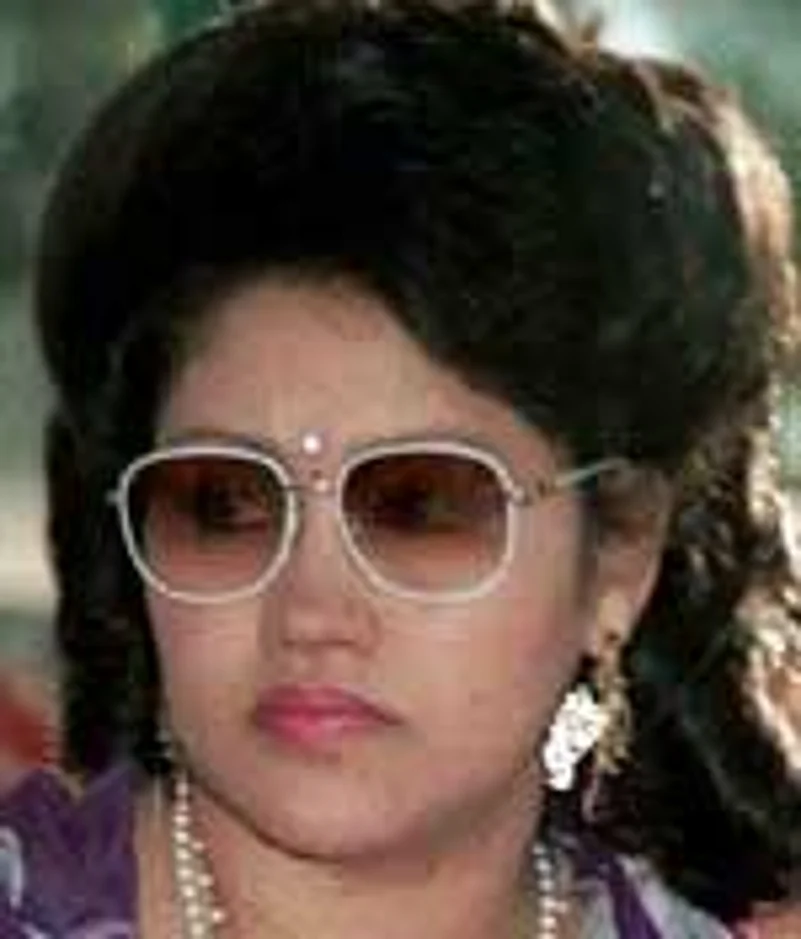Nepal's King Birendra Bir Bikram Shah Dev, shot deadby his son, along with his wife and some other royal family memberson Friday night, was a visionary who firmly believed in close and cordialrelations with India and other South Asian neighbours and will go down inhistory as a monarch who led Nepal through changing political times, once rulingover world's first and only communist monarchy.
Born on December 28, 1945 to King Mahendra Bir Bikram Shah Dev and IndraRajya Lakshmi Devi Shah, at the Narayanhiti RoyalPalace, the official residence of the Nepalese Monarchs -- the same place wherehe was shot and died last night.
Advertisement
He was educated at a catholic missionary school St Joseph's School inDarjeeling (West Bengal, India) followed by years at Eton College in Britain,the University of Tokyo in Japan and Harvard University of the United States -- themost educated person to become monarch of the 275 year old Shah dynasty.
Birendra, who played an active role in the establishment of the South AsianAssociation for Regional Co-operation, ascended the throne on January 31, 1972,following the death of his father and ruled Nepal for three decades, first asabsolute monarch and from 1990 as constitutional monarch.
His first state visit after accession was to India in October 1973 and Chinatwo months later, reflecting his desire and willingness to give a new impetus tostrengthen close and cordial ties with the two immediate and next-doorneighbours.
Advertisement
Throughout the 1970s, the King sought to expedite economic developmentprogrammes while maintaining a "non-party" political systemestablished by his father. The results were disappointing on both accounts, andby 1979, a systemic crisis was evident.
To meet the first serious political challenge to the monarchy since 1960, heannounced in May 1979 a national referendum to decide between a non-party andmulti-party political system.
However, in the referendum held in May 1980, political groups supporting thenon-party system won by a relatively small margin of 55 per cent.
King Birendra decided to retain the 1962 constitution, but to liberalise thepolitical system by providing for direct popular election of the NationalAssembly.
Though elections were held on a "partyless" basis, many candidatesbegan openly representing political parties.
In April 1990, he lifted the ban on political parties, abrogatedthe more repressive security ordinances and on April 16 appointed an interimgovernment, paving the way for major political reforms which made Nepal aconstitutional monarchy and a multi-party parliamentary system.
Parliamentary democracy or yearnings for a communist state notwithstanding, for many simple, uneducated Nepalis, the King was a much-loved man, venerated as a god, if not the God -- as all kings in the Himalayan kingdom traditionally pitched as reincarnations of Lord Vishnu.

Queen Aishwarya Rajya Laxmi Devi Shah was born on November 7, 1949, in Kathmandu, the eldestdaughter of a lieutenant general in the Nepalese armed forces. She was educatedin India and Tribhuvan University in Kathmandu.
Advertisement
Her greatest contributions to Nepalese society revolved around increasingopportunity for women in the Himalayan kingdom.
Queen Aishwarya Rajya Laxmi Devi was a champion of the cause of women andchildren of Nepal.
Awarded the Save The Children Distinguished Service Award by the Save theChildren Federation of the United States of America in December 1983, the queenalso played a significant role in the advancement of Nepalese women.
The Queen was also honoured with a Medal of Distinction, one of the mostoutstanding Lioness medals, by Lions International USA on November 23, 1985.
She had her early education at St Helen's Convent, Kurseong and St Mary'sSchool in Kathmandu.
Advertisement
She did her higher studies in Intermediate of Arts from the Padma KanyaCollege and later took a Bachelor of Arts degree from Tribhuvan University,Kathmandu.
She married Birendra on 28 February 1970 and the couple hadthree children -- Crown Prince Dipendra on June 27, 1971; Princess Shrution October 15, 1976 and Prince Nirajan on November 6, 1978.
Everything Has Been Lost
Rana Jagdish Shamsher, a close relation of Nepal's King Birendra, described theassassination of the King, Queen Aishwarya and other membersof royal family as "the biggest tragedy" of his life andsaid "everything has been lost".
"My misfortune is that there is no one left to consoleand i will go to Kathmandu on the 13th day for the lastrituals."
Advertisement
Rana said that he had a chance to meet all the members ofthe royal family at the 81st birthday of the oldest livinglady of the family at Kathmandu just 15 days back and he wasyet to convince himself that "the family" was no longer there.
Rana, who had left Nepal after the parliament wasdissolved in 1961, and is settled here in India since then said that aminor dispute over marriage of the prince had led to asituation which was avoidable, had the queen allowed theprince to marry the girl of his choice, who was also from avery respectable royal family.
Advertisement
He said he was particulary sorry for the King whom he considered to be an ardent democrat who introduced the parliamentary system in the country.
Gyanendra, the younger brother of King Birendra, wasdestined to become the King and it was a game of stars, hesaid adding, "what more can I say about this horrible incidentwhich had changed the complexion of Nepal?".



















